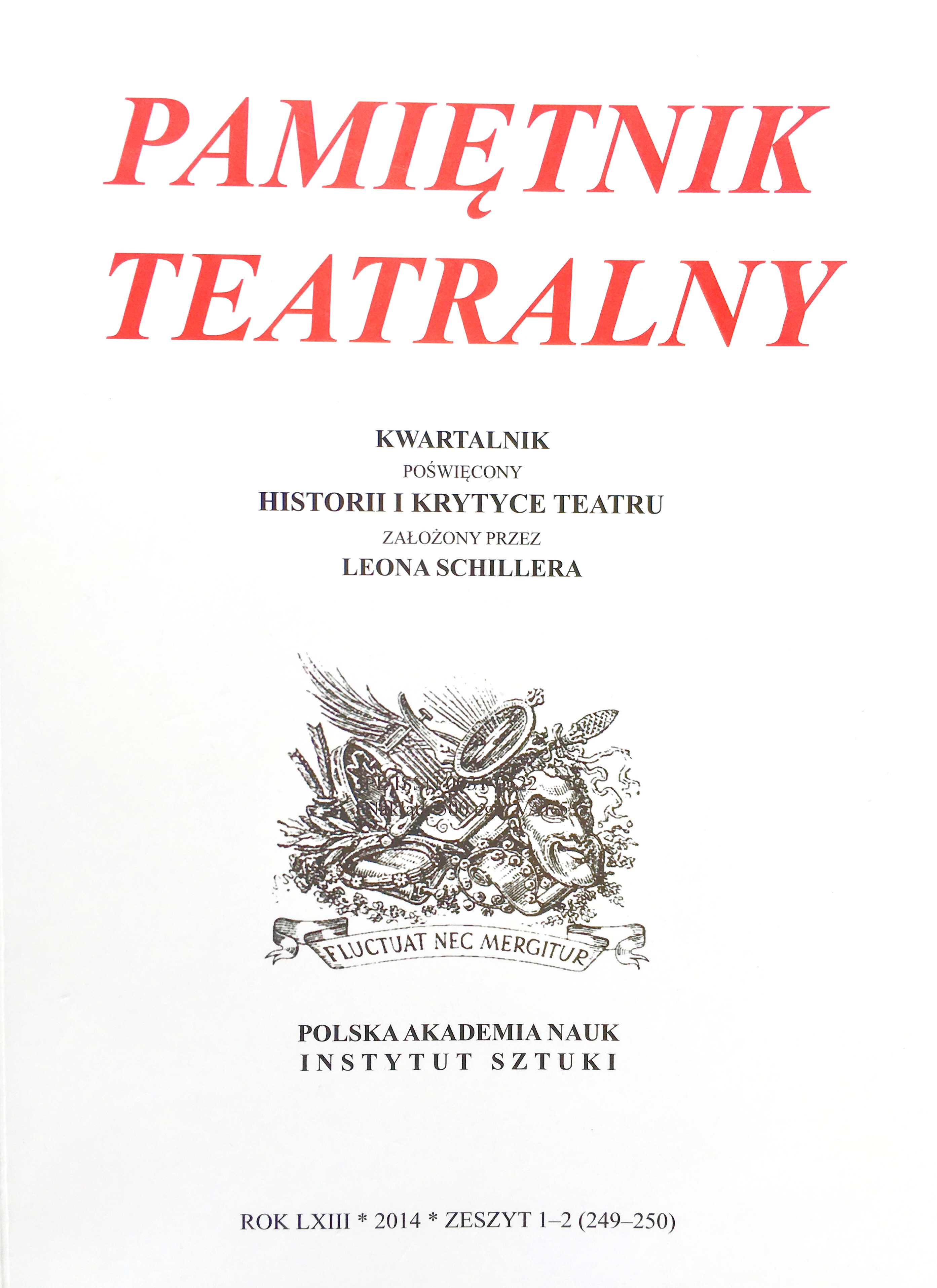Recenzja książki Zbigniewa Jędrychowskiego, Teatra grodzieńskie 1784–1864 (Warszawa, 2012)
Review of Zbigniew Jędrychowski's Book Teatra grodzieńskie 1784–1864 (Warszawa, 2012)
Author(s): Małgorzata LeykoSubject(s): Fine Arts / Performing Arts
Published by: Instytut Sztuki Polskiej Akademii Nauk
Keywords: theatre studies;theatre history;Polish theatre;
Summary/Abstract: Zbigniew Jędrychowski is the only Polish scholar conducting comprehensive historical research on the theatre life in Grodno and Grodno Province, and his book is the first monograph of Grodno theatre that spans the period starting with the opening of Stanisław August Poniatowski’s theatre on Horodnica in 1785 and ending in 1864 when the Polish stage was closed down as part of the repressions following the January Uprising. The book Teatra grodzieńskie encompasses the eighty-year-long period in which theatre companies remained active and performed in Polish, as it is the language that consists the author’s basic research criterion as to what theatre phenomena are to be taken into account. The Theatre on Horodnica, periodically lapsing into ruin, for three generations served the purposes of presenting Polish culture that was gradually stifled by the Russian rule. The venue was leased to managers of particular theatre companies, but the theatre house was owned and administered by the local authorities, first by the Grodno Governor, and then by the town council, which dictated artists their terms and supervised the repertory. The author has confirmed performances of troupes and companies managed by twenty-seven entrepreneurs, which first sporadically, and then, from the 1830s and 1840s regularly, toured also the whole region, performing at Brześć Litewski, Kobryń, Lida, Nowogródek, Świsłocz, Zelwa, and most of all at Druskieniki, which became the summer theatre capital of the province. The list of Grodno theatre managers opens with Wojciech Bogusławski, followed, inter alia, by Jan Szymański, Stanisław Nowakowski, Józef Surewicz, Andrzej Chełchowski, and women: Salomea Deszner, Izabela Górska, and Barbara Linkowska. In his historical chronicle, Jędrychowski interweaves several threads: he takes into account the changing political and legal situation, which defined the limits of the dwindling theatre freedom; he takes a look at the biographies of Grodno artists and their attitudes toward the tsarist administration, which reflect how Polish theatre was treated by the authorities; he reconstructs the history of theatre pieces, sometimes unknown or banned in the Kingdom of Poland but presented in Grodno; he studies both the history of particular texts, damaged by government interference, and the stage world of the epoch that they reveal. Complemented with a list of repertories and indices that make it easy to find detailed information, the book by Jędrychowski is outstanding in its exceptionally thorough editorial and typographical aspects as well.
Journal: Pamiętnik Teatralny
- Issue Year: 250/2014
- Issue No: 1-2
- Page Range: 271-278
- Page Count: 8
- Language: Polish

